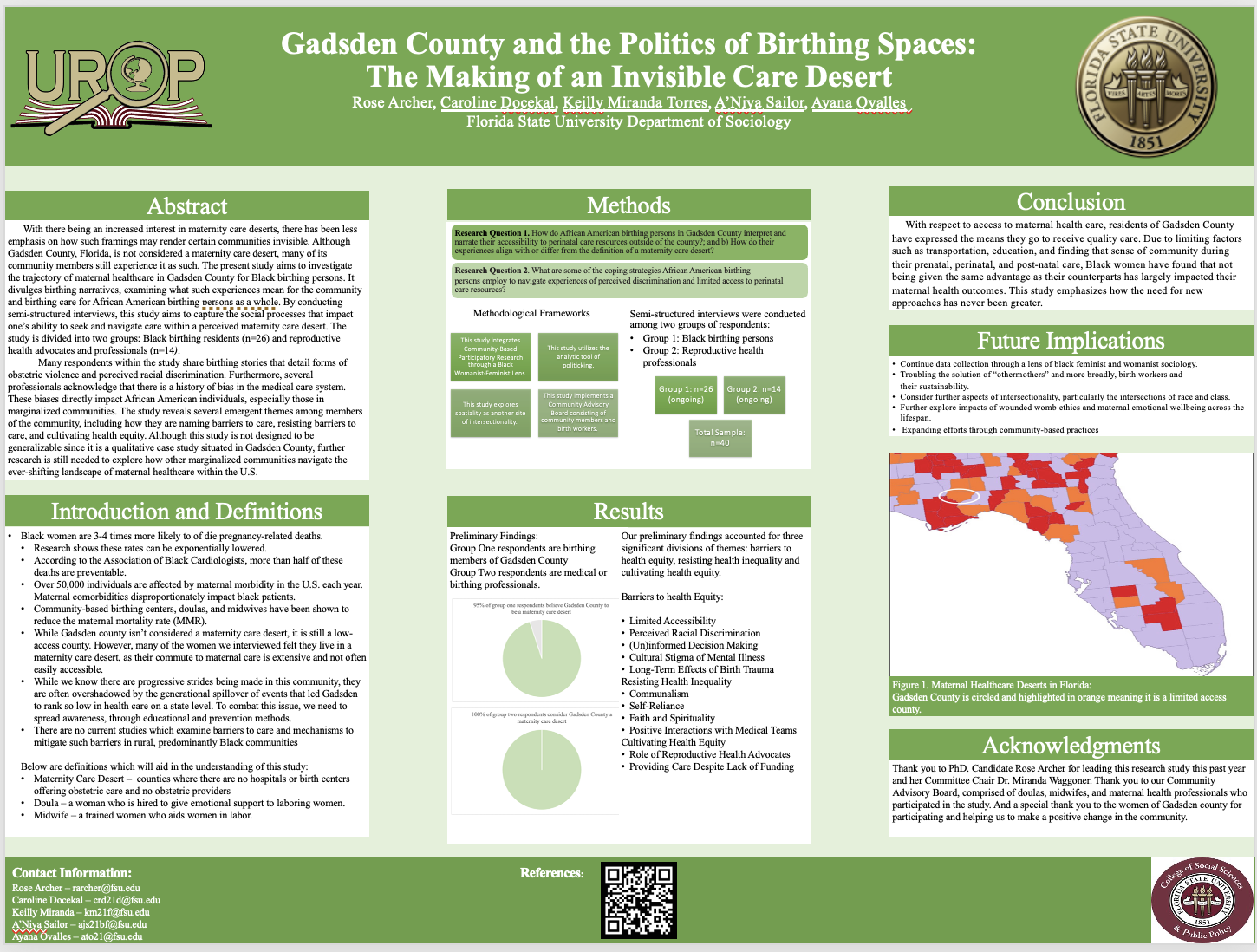Research Symposium
23rd annual Undergraduate Research Symposium, April 6, 2023
Keilly Miranda Torres Poster Session 1: 11:00 am - 12:00 pm/ Poster #24

BIO
Hi! My name is Keilly Miranda Torres, and I am a second-year Junior at Florida State. I am from Miami, Fl, and am planning to pursue a Juris Doctorate after I graduate. My interests in equity and human rights are what led me to this project and the law system in general. I have been working on the project directed by Mrs. Rose Archer throughout this semester in order to find maternal health disparieties and inequities amongst the Gadsden County birthing community; I plan to continue my involvement in UROP next year by becoming a leader and I look forward to teaching the next group of Undergraduate Researchers!
Gadsden County and the Politics of Birthing Spaces: The Making of an Invisible Maternity Care Desert
Authors: Keilly Miranda Torres, Rose ArcherStudent Major: Political Science
Mentor: Rose Archer
Mentor's Department: Sociology Mentor's College: College of Public Policy and Social Sciences Co-Presenters: Caroline Docekal, Ayana Ovalles, A'Niya Sailor
Abstract
With there being an increased interest in maternity care deserts, there has been less emphasis on how such framings may render certain communities invisible. Although Gadsden County, Florida, is not considered a maternity care desert, many of its community members still experience it as such. The present study aims to investigate the trajectory of maternal healthcare in Gadsden County for Black birthing persons. It divulges birthing narratives, examining what such experiences mean for the community and birthing care for African American birthing persons as a whole. By conducting semi-structured interviews, this study aims to capture the social processes that impact one’s ability to seek and navigate care within a perceived maternity care desert. The study is divided into two groups: Black birthing residents (n=26) and reproductive health advocates and professionals (n=14).
Many respondents within the study share birthing stories that detail forms of obstetric violence and perceived racial discrimination. Furthermore, several professionals acknowledge that there is a history of bias in the medical care system. These biases directly impact African American individuals, especially those in marginalized communities. The study reveals several emergent themes among members of the community, including how they are naming barriers to care, resisting barriers to care, and cultivating health equity. Although this study is not designed to be generalizable since it is a qualitative case study situated in Gadsden County, further research is still needed to explore how other marginalized communities navigate the ever shifting landscape of maternal healthcare within the U.S.
Keywords: inequities, birthing, maternal, healthcare, disparities


